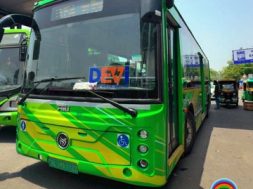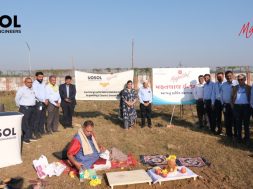
Renewable energy department has already installed them in 700 of 1,400 govt buildings, health facilities are on priority.
Jharkhand has started equipping hospitals and other healthcare facilities with solar panels in a move to combat power outages that have led to several casualties across the country during the first and the second wave of Covid-19, officials from the Jharkhand Renewable Energy Development Agency (JREDA) said on Monday.
The agency has identified about 1,400 government buildings, including Sadar hospitals, Community Healthcare Centres (CHCs) and Primary Healthcare Centres (PHCs), for the project, said JREDA project director Vijay Kumar Sinha, adding that the government was prioritising healthcare facilities during the first phase of the project in a bid to ensure uninterrupted power to hospitals in case a third wave of Covid-19 hits Jharkhand.
“In the first phase, we are focusing on healthcare centres. Ensuring uninterrupted power supply to hospitals is a priority for us, especially during such testing times,” said Sinha.
Several casualties were reported in hospitals due to power outages in various states, including Uttar Pradesh, Telangana and Punjab, earlier this year. Patients on ventilators were most vulnerable and the worst hit.
While no such incidents were reported in Jharkhand during the first and the second wave of Covid-19, the government has been focusing on improving power supply to various hospitals in order to prevent any such accident, an official from the health department said.
Health officials in Jharkhand observed during the Covid crisis that uninterrupted power supply was a prerequisite for storing medicines at lower than room temperatures and treating severely-ill patients. JREDA and health department jointly decided to install 2-4 KiloWatt solar panels in each of the CHCs and PHCs to at least store medicines and vaccines, an official said.
Sources from JREDA said that rooftop solar panels have already been installed in more than 700 of the identified 1,400 government buildings and the remaining buildings are also likely to be equipped with solar power within the next six months or so.
JREDA is also developing a software through which it will be able to monitor the functioning of all the solar panels across the state. Microchips will be installed in each of the solar panels, which will help JREDA engineers identify any glitch in the system without having to move to the location, officials said.
Once the hospitals are powered by solar energy, JREDA will start focusing on other government buildings like police stations and residential hostels, JREDA Director K.K. Verma said.














